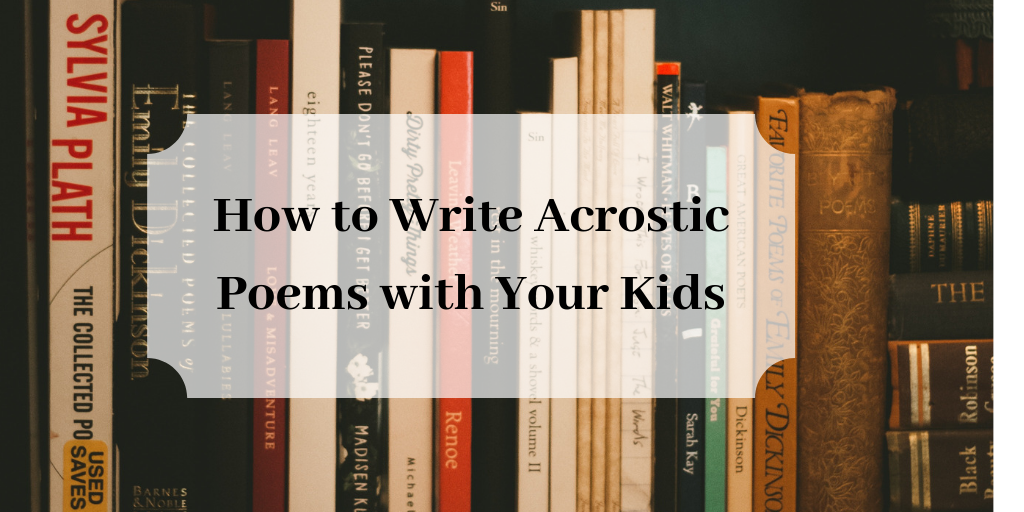How to Write Acrostic Poems with Your Kids
An acrostic poem is the kind of poem that looks like this: Piecing words together On paper like this Emits a certain Memory Well, that’s just the first thing that came to mind. Do you get what it is now, though? Acrostic is not often used as high literature, but it is a fun way to help kids write poetry. We use The Good and the Beautiful language arts, level 2. It’s good. It’s beautiful. It’s free. It’s absolutely sufficient…

